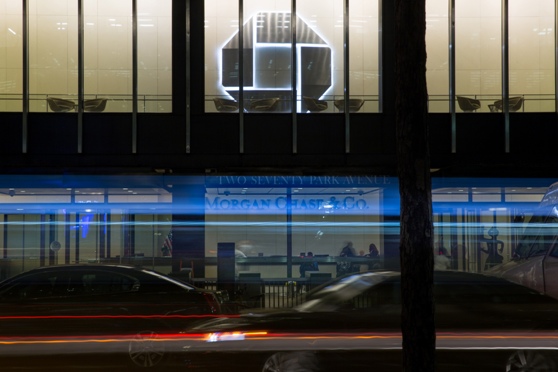Banks suspected illegal activity, but processed big transactions anyway

By Noam Scheiber and Emily Flitter
A cache of thousands of reports that major banks filed with federal regulators shows that they helped suspected terrorists, drug dealers and corrupt foreign officials move trillions of dollars around the world, despite the banks’ concerns about the suspicious nature of the transactions.
The documents, known as suspicious activity reports, were obtained by BuzzFeed News and shared with a worldwide consortium of journalists. The more than 2,100 suspicious activity reports, filed by major US and international banks, relate to more than $2 trillion of transactions between 1999 and 2017.
Banks are required to file the reports with the US Treasury Department’s Financial Crimes Enforcement Network, or FinCEN, about transactions that they believe could be part of a money laundering scheme, fraud or other illegal activity.
BuzzFeed obtained suspicious activity reports filed by the largest US lenders — including JPMorgan Chase, Citigroup and Bank of America — and major international institutions like Deutsche Bank, HSBC and Standard Chartered. Many of those banks have been repeatedly penalized by US and other authorities for their roles in money laundering.
BuzzFeed and the International Consortium of Investigative Journalists, which collaborated on the project, did not make public many of the actual suspicious activity reports that they obtained. In a statement this month, FinCEN warned that “the unauthorized disclosure of SARs is a crime that can impact the national security of the United States, compromise law enforcement investigations, and threaten the safety and security of the institutions and individuals who file such reports.”
Among BuzzFeed’s main findings were that Standard Chartered, which operates primarily in Asia, the Middle East and Africa, appears to have helped move funds on behalf of a Dubai-based company that reportedly had ties to the Taliban. JPMorgan, Bank of New York Mellon and other banks appear to have helped move more than $150 million for companies tied to the North Korean regime, according to a companion report by NBC News.
As of late 2013, officials at JPMorgan Chase had also submitted at least eight suspicious activity reports on banking activity connected to Paul Manafort, President Donald Trump’s 2016 campaign chair. JPMorgan also moved more than $1 billion for the alleged mastermind of a giant fraud involving a Malaysian sovereign wealth fund.
In one suspicious activity report obtained by BuzzFeed, Bank of America officials in early 2016 warned the federal government about their serious concerns about how Deutsche Bank was failing to detect and prevent money laundering. Deutsche Bank has been among the world’s most heavily penalized banks, in part for its work laundering money for wealthy Russians.
Patricia Wexler, a JPMorgan spokesperson, said, “We have played a leadership role in anti-money-laundering reform that will modernize how the government and law enforcement combat money laundering, terrorism financing and other financial crimes.”
A spokesperson for Standard Chartered, Chris Teo, said, “We take our responsibility to fight financial crime extremely seriously and have invested substantially in our compliance programs.”
A representative for Bank of New York Mellon did not immediately respond to a request for comment.
Deutsche Bank has previously said that it is working to improve its anti-money-laundering systems.
Deutsche Bank has been under scrutiny in the United States because of its long-time role as Trump’s primary lender. BuzzFeed said that it did not receive any suspicious activity reports involving Trump. The New York Times reported last year that anti-money-laundering officers at Deutsche Bank raised concerns about transactions involving the accounts of Trump and Jared Kushner, the president’s son-in-law, but that bank managers decided not to file suspicious activity reports.
The suspicious activity reports relating to Manafort appear to have helped bring the large collection of documents to light. According to BuzzFeed, Democratic congressional committees requested the documents from the Treasury Department as they investigated Trump and the 2016 presidential election.
The documents suggest that banks sometimes use the system of reporting suspicious activities as legal cover for facilitating potentially illegal activity and that the reports do little to help federal officials prosecute the perpetrators.
The biggest banks each file tens of thousands of suspicious activity reports every year, and the total number has increased significantly over the past decade. At the same time, the staff of FinCEN has shrunk.
FinCEN, which did not immediately respond to a request for comment Sunday, announced last week that it was pursuing changes that would improve the effectiveness of anti-money-laundering programs.
Recently, banks have pushed Congress to relieve them of some of their anti-money-laundering responsibilities. They say they are so worried about the legal consequences of failing to report suspicious activities that they err on the side of over-reporting transactions. In 2017, 19 large banks filed a total of 640,000 of the suspicious activity reports, according to a study by the Bank Policy Institute, a lobbying group.
It is not unusual for banks to alert regulators to activity that may be illegal and then process the transactions they flagged. Between 2011 and 2013, for instance, JPMorgan wired money to banks in Switzerland, Lebanon and Nigeria on behalf of a convicted money launderer, reported the transactions to British and US authorities and carried on with its business. The Nigerian government is now suing the bank in British court for disbursing money in those transactions that officials claim should never have been allowed out of the country.
Experts on financial crime said the revelations from BuzzFeed should galvanize efforts to overhaul how money laundering is investigated and prosecuted.
“Trillions of dollars in dirty money gushes through the financial system in a toxic stew of criminal proceeds,” wrote Linda Lacewell, the superintendent of the New York Department of Financial Services, on Twitter. “The SAR should be the beginning of the analysis not the end. We must act.”
-New York Times

